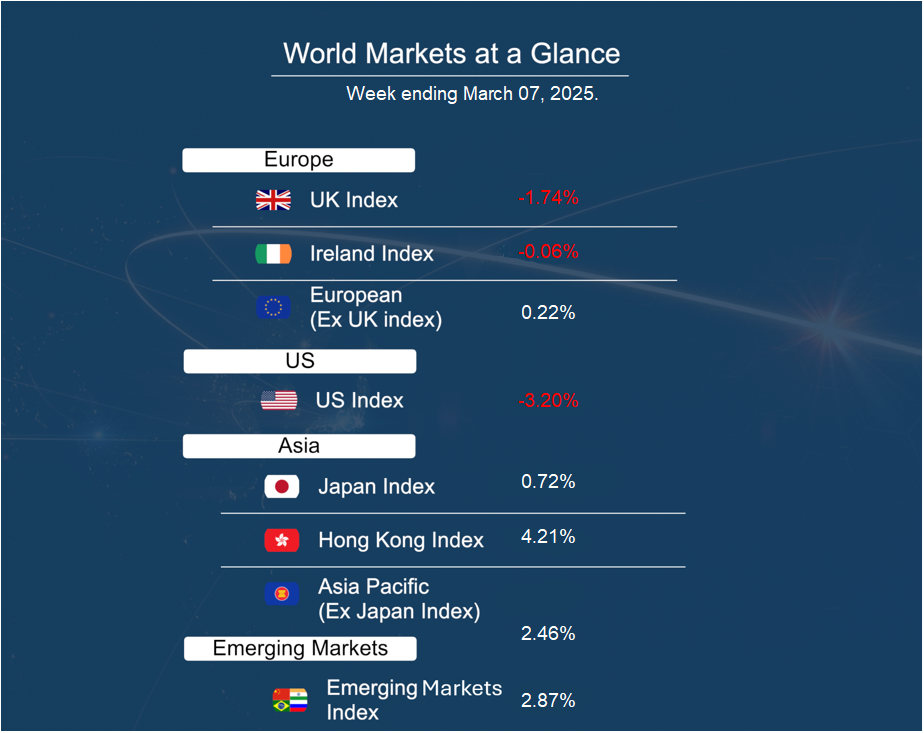While the ECB’s actions have helped reduce borrowing costs, spurring loan growth, uncertainty remains about their long-term effects, especially with developments in Europe. With Germany and the EU commissions announcements just days before the policy meeting, policymakers have not yet had time to assess the full impact on growth and inflation. ECB President Christine Lagarde acknowledged the frustration over repetitive rhetoric but stressed that the rapidly changing economic landscape requires caution with risks from energy prices, trade policy, and shifting fiscal policies.
This week’s market activity serves as a timely reminder that while it’s easy to get swept up in the short-term noise, it’s crucial to avoid knee jerk reaction. A case in point: President Trump’s ever-changing stance on tariffs. On Tuesday, March 4th, the US administration announced sweeping 25% tariffs on imports from Mexico and Canada. However, by Thursday, the implementation was postponed for a month. This temporary delay applies to goods covered under the USMCA trade agreement, which was negotiated during Trump’s first term, giving both countries some breathing room for continued discussions. These shifting policy moves highlight the importance of maintaining a long-term economic perspective, rather than reacting hastily to the latest developments in trade and tariffs.
The latest US labour market report revealed job growth picked up in February with a gain of 151,000 jobs, slightly below expectations but an improvement from January’s 125,000. Job growth was strongest in healthcare, financial activities, and transportation, while federal employment declined. Federal government payrolls, excluding the post office, fell by 6,700, signalling a broader trend as Elon Musk’s Department of Government Efficiency (DOGE) has implemented significant layoffs as part of a major initiative to downsize the government and cut costs.
The unemployment rose to 4.1% in February 2025, up from 4.0% in January and slightly exceeding market expectations of 4.0%. Overall, the data suggests a cooling labour market, yet it remains resilient, which could support a more cautious approach by the Federal Reserve.



